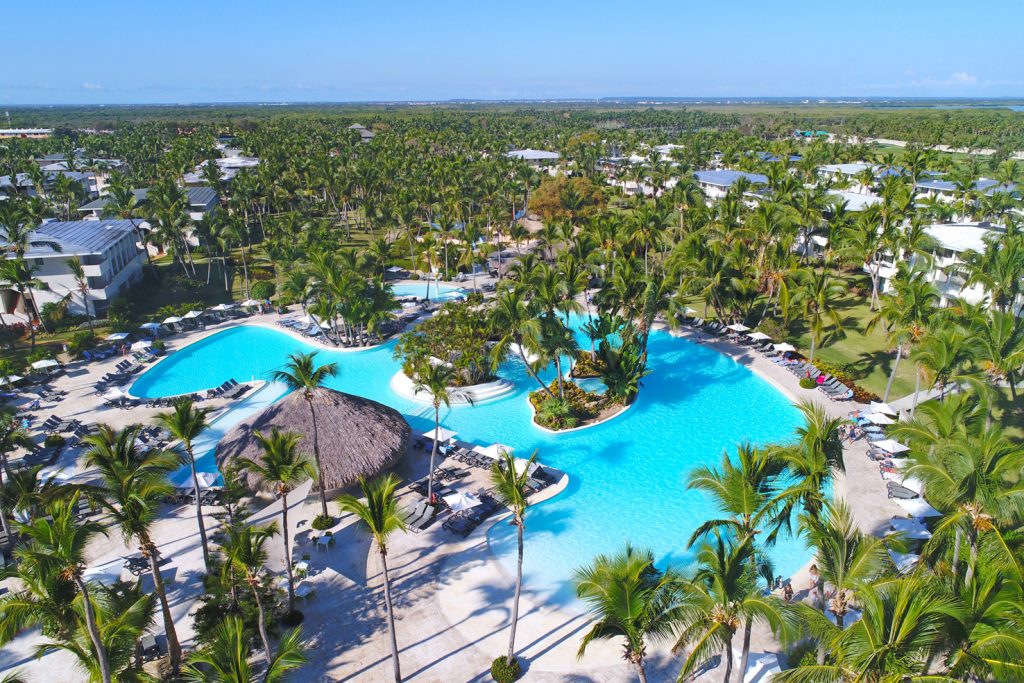The constant evolution of the hotel industry has resulted in a wide range of options for travelers who want a unique lodging experience. Hotels and resorts represent two of the most popular options for lodging, whether for pleasure or for work; resort hotels, each with their own distinctive features and attractions.
However, there are significant differences between these two types of establishments, especially in terms of the experiences and services they offer. While hotels offer comfort and a wide range of services in diverse locations, resorts stand out for their luxury, scenic location and focus on memorable experiences. The choice between a hotel and a resort ultimately depends on the traveler’s individual preferences.
At ABAL Consulting we want to delve even deeper into the differences and similarities between these two types of tourist accommodations, and how they are evolving to meet the changing expectations of travelers.
Resort Hotel: What is a Hotel?
Hotels have long been the most common and affordable option for travelers looking for a comfortable place to stay during their travels. They are in a variety of locations, from downtown to suburban or rural areas, allowing travelers to choose a location that fits their plans and preferences. The classification into various categories (stars, letters from E to A, classes, diamonds and World Tourism ratings), helps customers understand the level of comfort and service they can expect.
There are several lodging options to suit the different needs and budgets of travelers. From standard rooms to luxury suites. Often, depending on the choice, services change, especially those related to the hotel restaurant. Although most host restaurants offering a wide variety of dining options, full or partial board depends on your situation as a guest. The same applies to the bar and cocktail service. However, there are always a number of basic services that most hotels provide, such as 24-hour reception, room services, daily housekeeping and parking.
Depending on the hotel we can find different facilities. They often have conference rooms and meeting space, making them popular venues for corporate events. Many even have fully equipped gyms and swimming pools where guests can relax while enjoying a swim.
Resort Hotel: What is a Resort?
It is a more exclusive category within the hotel industry. Luxury resorts pride themselves on offering high quality services to their guests. Also included in this concept of luxury are the luxurious and spacious suites -even private villas- that many resorts offer in lieu of a standard room. This provides guests with more space and comfort during their stay.
In addition, these establishments are often located in stunning natural settings, such as tropical beaches, scenic mountains or rural landscapes where unique experiences can be had. The distinguishing feature of a resort is its focus on offering a wide range of recreational and entertainment activities for its guests. This can include water sports such as diving and snorkeling, golf, hiking, skiing, horseback riding and much more.
Trend towards luxury all-inclusive
The “all-inclusive” concept has undergone a significant evolution in the hotel industry over time. Initially, it was mainly associated with the quantity of services offered, rather than quality. Travelers often encountered standard food buffets and low-quality drinks instead of authentic dining experiences. However, this perception has changed considerably in recent years.
Today, many luxury resorts have transformed the “all-inclusive” concept into a high-quality, personalized experience. They focus on providing differentiated and innovative services that exceed customer expectations and enhance the resort’s satisfaction and reputation. Examples of luxury all-inclusive resort services include:
- Exclusive culinary experiences. The luxury resorts offer gourmet restaurants with menus designed by internationally renowned chefs. Guests can enjoy a wide range of dining options, from authentic local cuisine to elegant international dishes.
- Guests have access to high-end spa facilities, state-of-the-art fitness centers and championship golf courses.
- Custom-designed activities. The resorts offer customized activities for all ages, from exciting nature hikes to cooking classes and wine tastings.
- Premium beauty products. Guests can enjoy beauty and skin care treatments with luxury products that enhance their well-being and relaxation.
- Personalized concierge. The resort’s concierges are available to assist guests with all their needs and desires throughout their stay, ensuring that each experience is unique and memorable.
Luxury and sustainability go hand in hand
In the current context, travelers are increasingly aware of their impact on the planet and are looking for more sustainable experiences. Tourists are willing to invest a larger budget in sustainable accommodations that align with their environmental values and concerns. The hotel industry, especially the luxury sector, is adapting to meet these new expectations as they are aware of their great impact on the environment. Luxury hotels are responding to this demand by focusing on authentic and enriching experiences that represent the local culture and contribute to the overall well-being of the community.
Some of the measures to minimize the impact on the environment and ensure greater integration with the surroundings are:
– Reducing water and energy consumption, as well as responsible waste management.
– Many hotels are investing in renewable energy sources, such as solar panels and wind turbines, to reduce their carbon footprint.
– The incorporation of local and sustainable products in the hotel’s restaurants and spas promotes the local economy and reduces the need for long-distance transportation.
– Luxury hotels often collaborate with local organizations and participate in corporate social responsibility projects to contribute to the well-being of the surrounding communities.
In this context of luxury and sustainability, Spain is in an optimal position to attract tourists seeking exclusivity and premium experiences. The country offers a wide variety of destinations, from beautiful beaches on the Mediterranean coast to majestic mountains in the Pyrenees and the Canary Islands. Spain is known for its rich gastronomy, cultural heritage and vibrant artistic offerings.
As the hotel industry continues to evolve, travelers can expect even more exciting options and unforgettable experiences on their future trips. Whether choosing a hotel or a resort, the key is to find the place that perfectly suits your wishes and expectations for an unforgettable stay.





 by
by 
